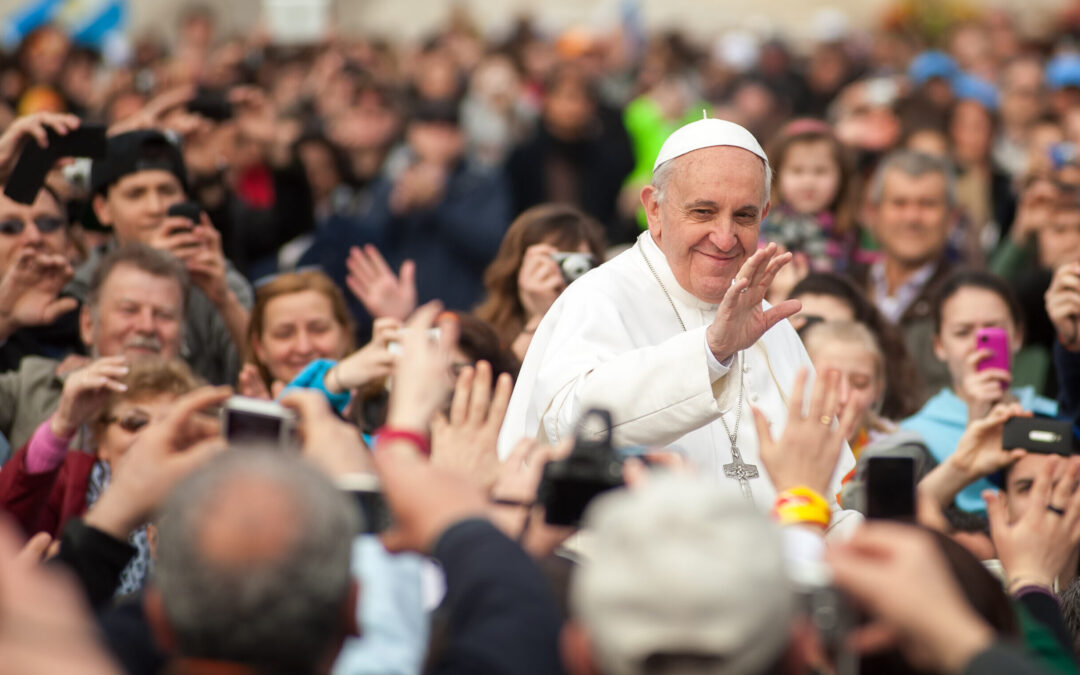The Nothingburger Synod
The anti-Francis media—the very phrase, “anti-Francis,” should be a source of shame for them—proved utterly derelict in this regard. Their failure isn’t just one of secular journalistic norms, but one of faith and filiality.
In these days of war, riot, and pandemic, no news is truly good news. And the principle applies equally to the life of the Catholic Church: It’s good news indeed that, contrary to the hopes of Catholic liberals and the fears of traditionalists, Pope Francis’s “Synod of Synodality” concluded its work over the weekend, and the result was…no doctrinal changes on hot-button questions.
Call it an apostolic nothingburger.
The disappointment of ecclesial liberals and their allies in the secular media was summed up by a New York Times article on the conclusion of the Roman gabfest. “Progressives who once hoped that the synod would create momentum for things like reaching out to LGBTQ+ Catholics said the meeting had failed to move the institution,” ran the paper’s sub-headline. Proponents of allowing married priests, blessings for same-sex unions, and the like watched with dismay as their ideas “basically vanished” from the final document, as the Gray Lady reported.
Instead, the gathering of prelates, specially selected priests, and lay advocates and experts ratified a series of vague and unobjectionable action items. Women must urgently play a bigger role in the Roman church’s affairs, the document said, but it didn’t specify what that would entail—more Karens from the Parish Council?—let alone broach deaconesses. Meanwhile, rainbow-talk was “almost entirely expunged,” per the Times.
To be sure, the document contained not a small portion of the sort of human-resources and therapeutic vernacular that has sadly invaded the Church’s language. (“Our personal narratives will enrich this synthesis with the tone of lived experience….”) But I wonder whether appropriating the outward forms of the HR-therapeutic complex is precisely the Church’s way of repelling its substance. In the event, liberal would-be reformers got nothing substantive out of the Synod on Synodality.
Which brings us to the conservatives and traditionalists. For weeks and months leading up to the synod, mainly Anglophone opponents of Pope Francis had published a steady stream of overwrought commentary on how the gathering would doom Catholicism, making normative for the universal Church the aberrant liberal practices of some bishops in Western Europe, especially Germany.
“Ask Mary to Save Us From the Synod on Synodality” was a typically unsober headline on one such piece that appeared in Crisis Magazine. Another writer in the same outlet warned that “synodality” will become “a cover for implementing fundamental changes to Catholicism. Using terms like ‘journey together’ and ‘gather in assembly’ put a happy face on the radical deconstruction of the Catholic faith.”
But it wasn’t to be. No “fundamental changes to Catholicism” took place. Nor was the faith radically deconstructed. That should alert hardcore traditionalists that perhaps they’ve got Pope Francis all wrong; that by constantly questioning his fidelity to the deposit of faith and striking an opposition-from-the-get-go posture whenever he tries to teach, they not only act without due docility toward the Vicar of Christ on Earth, but betray the older models of papal authority they seek to restore.
In his opening meditation on the synod, the pope himself all but spelled out that liberals would be disappointed, while the trads would end up looking foolish for fanning hysteria. Previous gatherings, he noted, had been the subject of similar anticipations. The Synod on the Family, conservatives feared, would open the doctrinal way to the divorced and remarried being admitted to communion. The Synod on the Amazon was supposed to bring the ordination of the so-called viri probati (married men of strong faith). But none of it came to pass. “Now,” Francis added,
There is speculation about this Synod: ‘What are they going to do?,’ ‘Maybe ordain women….’ I don’t know, those are things they are saying out there. And it is often said that the bishops are afraid to talk about what is going on. For this reason, I ask you, members of the press, to do your work well, fairly, so that the Church and people of good will—other people will say what they will—can understand that also in the Church, listening has priority. Communicate this: It is so important.
The anti-Francis media—the very phrase, “anti-Francis,” should be a source of shame for them—proved utterly derelict in this regard. This is not merely a failure to uphold secular journalistic norms, but one of faith and filiality.
The post The Nothingburger Synod appeared first on The American Conservative.

